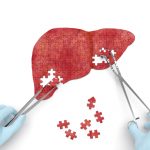Understanding Alcoholism Within Families
Understanding alcoholism within families takes research science, some psychology, a lot of understanding, love and even then you still may not understand it. You pass on many things to your children and grandchildren, from their eye color to their hair.
But did you know if you or anyone in your family suffer from alcoholism, it’s one more thing you may pass down? Then again, you might not pass it down. Genetic research on how alcoholism develops in some people but not others is still ongoing. Alcoholism can be passed down through genes or just by living with a family member suffering from alcoholism.
It’s not something you want to pass down, and if you could change it almost everyone would. But the link between alcohol and family relationships exists. The link has also been researched fully. The conclusion is researchers now recognize alcoholism can run in the family, no matter which way it’s passed on. The goal with both researchers and families is to try to make sure passing it down stops.
Alcoholism Within Families
Alcoholism is a complicated disease, and as stated above, the jury is still out on whether or not you can pass down alcoholism through your genetic line. What we do know is there are links between families and various members’ addiction to alcohol. It’s estimated 45% of the population has been exposed to a form of alcoholism or alcoholic behavior by someone in their family. There are other studies that state children of alcoholics are three to four times more likely than their peers to be addicted to alcohol.
In addition to alcoholism within families, you also have the manifestations of alcoholism and what it does to families. It’s a two-fold process to research and understand. A good place to start is with research on alcoholism being passed down through family genetics.
Then the information below will relate theories regarding alcoholism not being passed down through the family line of genetics. That begs the question of why there are so many children of alcoholics who become alcoholics themselves?
The Genetic Research Question on Alcoholism
It’s true being a child of an alcoholic parent can increase a child’s chance of becoming an alcoholic. Then again, it may have nothing to do with the child becoming an alcoholic. There’s concrete research that proves both arguments. The problem becomes how to break down the research, so it helps our understanding of how alcoholism has such a huge impact and plays such a large part of the family dynamics.
ADH1B and ALDH2
Alcoholism is a complex disease with varying research suggesting the two genes of alcohol metabolism are ADH1B and ALDH2. These two genes also have the strongest evidence to argue it is these two genes that predict if a person becomes an alcoholic. There are other genes that also increase alcoholism risks like GABRA2, CHRM2, and more. It’s an important question because every pregnant couple, the mental well-being of our families count on knowing it. I
t’s also important because alcohol causes 3 million deaths per year. Family studies show there are substantial genetic contributions to who becomes an alcoholic. More research is needed, and it must be done in larger scales to determine if the genetic component of alcoholism within families. The research needs more funding so better healthcare and psychiatric care can be planned and given to families at risk when they begin to have children.
Children of Alcoholics
Many children of alcoholics grow up in homes where they don’t know what to expect from one day to the next. Even if the child of an alcoholic doesn’t become an alcoholic, they can still have trouble developing healthy and trusting relationships with their partner.
This is because they were preoccupied with handling whatever crisis was going on with their alcoholic parents’ episodes during the formative years so they weren’t given a chance to learn how to trust. No matter the reason, many children of alcoholics begin to spiral into alcoholism when they start using drinking as a coping mechanism.
Symptoms of Members Living Within Alcoholism Disorder Families
Many books have been written about some of the symptoms of family members when they’re living with someone who suffers from alcoholism. Some of the books have common symptoms that are displayed. They are things like most family members become good liars because lying is easier for them than telling the truth.
Some family members have a difficult time having fun or take themselves too seriously. Many family members seek a lot of affirmation and approval. Many of the family members suffer from impulse control issues, which leads them to self-loathing or confusion. What’s been studied in detail is many children of alcoholics find themselves attracted to alcoholics or other compulsive personality disorders, which displays itself through being emotionally unavailable.
Understanding Alcoholism
It always needs to begin with understanding alcoholism can be confusing or perplexing. The next thing you need to understand is alcoholism isn’t a choice, but it’s a disease. When it’s in one of your family members you need to quit hiding it from everyone. Every alcoholic will realize they’re an alcoholic in their own time. Hiding it from everyone does nothing to help you or them. You can’t quit going out because you fear other people may ask about your family member’s absence.
You don’t have to lie about what’s going on and why they aren’t there, and you don’t have to shout the truth from the roof. Let the family member explain what happened once they’re sober. Facts prove the more the alcoholic family member experience negative consequences from their out of control drinking, the more they may be willing to seek help for their problem.
Alcoholism and Spouses/Partners
If you set a boundary with your partner or spouse who suffers from alcoholism, don’t move the boundary line. You don’t have the ability to protect your partner from their actions. The only thing you can do is protect yourself. Set your limits about whatever is important to you.
Each family member or spouse has different things they want limits on. If you won’t be with your partner during a drinking episode when you’re out with friends or other family members, stick to your boundary. By making your boundary a moving object that changes based on what your alcoholic partner wants you to do or say, you aren’t helping them, you’re enabling them.
Sometimes it’s setting limits that help them when you walk away during an anniversary party for friends. Maybe it’s what they need to help them admit they have a problem. But if you keep giving in to their justifications or demands, they don’t have a chance to experience a negative consequence.
Alcoholism and Pregnancy
Scientists have learned about Fetal Alcohol Syndrome (FAS) and what could happen if a pregnant woman drank while pregnant. FAS is when brain damage and growth problems result from a mother drinking during her pregnancy. You can’t reverse it, and there is no cure. Medical practitioners will tell you there’s no amount of alcohol safe to consume during your pregnancy because no one knows what alcohol limit triggers FAS.
Medical researchers have been able to trace back FAS to the alcohol the mother ingested during pregnancy, but the severity of the symptoms differ from child to child. Some children have heart defects or vision problems. Some children suffer from deformities and intellectual disabilities. Sometimes FAS can be better or worse, but protecting the unborn child from FAS should always be the priority in a family.
Alcoholism Within Families Has Support Systems
There are various support systems available to families living with alcoholism. No family is an island, and the effects of alcoholism will impact each member of the family differently. The one consistent will be the alcoholism’s effect will have a hard impact on each of them, and the effects will last a lifetime. There is help available in helping you learn about what causes alcoholism, what recovery options are available for your family member, and, most importantly, where you can go for help in dealing with your alcoholic family member.
You can learn how to stage an intervention or learn how to be less judgmental while sticking to your boundaries. Family members should try never to enable the member who suffers from alcoholism. That may be one of the hardest things to stick to because when we love someone, it’s natural to want to help them. But whatever enabling activity the alcoholic family member asks for, you should try never to give in.
Family Support Resources
There are excellent family support groups like Al-Anon and Adultchildren.org that can help provide resources and a place to share your feelings about living within a family experiencing alcoholism. Family therapy is also something that needs to be used with all the family members included.
Every support service or resource helps you maintain feelings of empowerment. They also help validate your anger, confusion, sadness, and hope. Because tomorrow is another day, you need to let it unfold without trying to control alcoholism behavior or excuse it. But it’s okay to know you can love your alcoholic family member and still maintain your self-respect with a healthy sense of self.
[1] Dealing with Denial in Alcoholism. (2018, October 8). Retrieved from https://psychcentral.com/lib/dealing-with-denial-in-alcoholism/ [2] U.S. Department of Health and Humans Services Administration for Children and Families Administration on Children, Youth and Families Children’s Bureau Office on Child Abuse and Neglect. (2018, October 8). Protecting Children in Families Affected by Substance Use Disorders. Retrieved from https://www.childwelfare.gov/pubPDFs/substanceuse.pdf [3] Genetics and alcoholism. (n.d.). Retrieved from https://www.ncbi.nlm.nih.gov/pmc/articles/PMC4056340/ [4] Alcohol. (2018, September 21). Retrieved from https://www.who.int/news-room/fact-sheets/detail/alcohol [5] Setting Your Boundaries. (2011, 17). Retrieved from https://www.psychologytoday.com/us/blog/heartache-hope/201106/setting-your-boundaries [6] Fetal alcohol syndrome – Symptoms and causes. (2018, January 10). Retrieved from https://www.mayoclinic.org/diseases-conditions/fetal-alcohol-syndrome/symptoms-causes/syc-20352901





